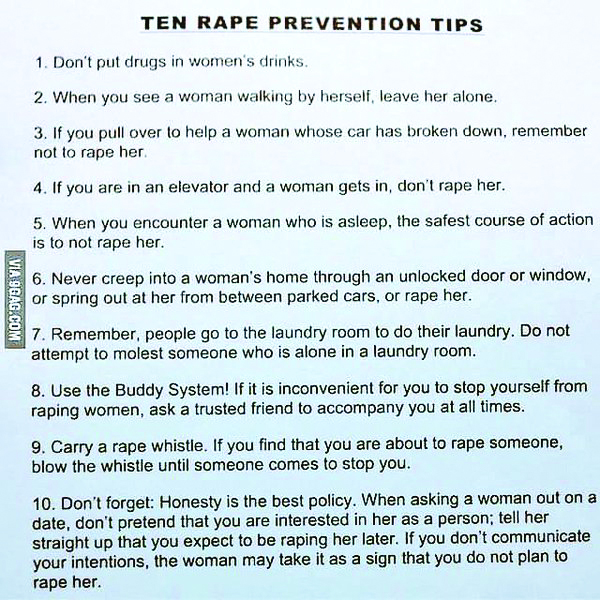
Brittany Wilson || Kristen Griffith / The Whetstone
By Brittany Wilson, The Whetstone
We’ve all heard it before. In any discussion involving a recent sexual assault there’s always that one person who sides with the rapist.
I shook my head more aggressively with every word he muttered.
“Well what was she wearing,†he said. “Maybe she shouldn’t have had so much to drink.â€
I rolled my eyes so far into the back of my head it’s a wonder they didn’t get stuck like that.
He talked as if rape can somehow be justified as the deserved punishment for dressing a certain way or getting drunk.
Um, what? No.
It horrifies me to think that our culture reinforces this sort of thinking, and that, somehow, there are still people out there who are totally blind to the seemingly insurmountable double standards that exist within this logic.
This semester, Wesley College administration has made a conscious effort to host Title IX events on campus, striving to educate students about their rights.
That’s a good thing, right? I mean, yeah, students are finally aware of the policies and procedures enforced under Title IX, specifically those involving cases of sexual assault.
But it seems to me that some of Wesley’s efforts simply echo the double standards of American rape culture—with no real, change-making solutions.
In recent years, there has been a noticeable trend within college administrations’ conversations about sexual assaults on their campuses: 1. Make sure women know what to do if they are assaulted; and 2. Hold women accountable for the prevention of their own rapes.
I’m not saying it’s intentional. I am thankful that colleges recognize that rape is a real problem that needs to be publically addressed.
But if I see one more statistic about how the majority of sexual assaults occur when women are under the influence of alcohol, I am going to scream. (What do those fliers even mean anyway? That women should only drink alcohol if they are looking to get raped? That only men should go to parties?)
Victim-blaming does not prevent assault.
And if it did, the statistics about sexual assault on college campuses wouldn’t be nearly as disturbing as they are now.
Last week, a friend mentioned a gathering the college administration held for Wesley’s freshmen students. While the freshmen were socializing, other students were employed to drop Skittles into freshmen’s drinks without them realizing. The exercise was meant to prove the freshmen’s obliviousness to ‘predators’ and how easily their drinks could have been drugged.
Sadly, this isn’t just a game—it is the reality of our culture. And in the real world, the worst that can happen is much more devastating than choking on the Skittle at the bottom of your drink.
According to statistics, one in five women will be sexually assaulted during her college years. That’s 20 percent.
Wesley College’s 2016 Annual Campus Security Report defines sexual assault as “any incident forcing another person to perform a sexual act against his/her consent.â€
Sexual misconduct includes “sexual activity with a person who is mentally defective, mentally incapacitated, or physically helpless, including those individuals under the influence of alcohol and/or drugs, and who are therefore legally incompetent to give consent.â€
This is the missing part of the conversation.
Don’t get me wrong, it is always good to encourage students to be proactive, make smart decisions and be aware of their surroundings
But isn’t it time we stop solely preaching “victim prevention,†and start attacking this culture that manufactures predators in the first place?
Why aren’t we talking about the side effects of rape: the severe consequences of sexually assaulting someone, jail time and prison sentences; the emotional suffering, pain and intense psychological traumatization victims of sexual assault experience?
Why aren’t we discussing the fact that rape ruins lives—the attacker’s and the victim’s—and devastates communities.
Let’s talk about how the side effects of sexual assault extend far longer than just one night.
Let’s face it: Rape isn’t the result of clothing or insobriety or drugs. It is the result of a choice.
A choice in which victims have no say.
Let predators take responsibility for their own actions.

A satirical meme that went viral on social media titled “Ten Rape Prevention Tips†spoofed the common tips colleges give women to avoid falling victim to sexual assault.




